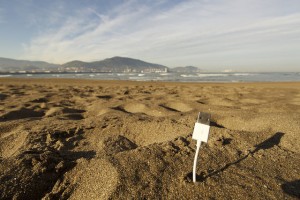
These are bitter cold days in Pittsburgh where I live. At this latitude these are also short days; among the shortest of the year, with either gray gloom or low glaring winter sun.
It can be hard to simply be. Add in the busyness of the ramp-up to Christmas and it can be very hard to write.
But what really makes it hard to focus on writing? Memory.
Actually that is true in any season.
Memory and Creative Work
The Desert Fathers and Mothers had a few things to say about memory. That’s what they had: in the life of the solitary monk, there was little new stuff pressing in.
They had to find helpful ways to deal with the old, the stew of past experience and past knowledge. Living well with their memories would make the difference between failure and progress.
That’s not only for monks. It is true of anyone who does solitary work–like writing.
I find different, and highly complementary perspectives from Abba Macarius and Abba Evagrius.
Memory as Problem
Abba Macarius lived as a hermit at a high elevation in the Egyptian desert — maybe up mountainside in a cave, or on a plateau. Most of the monks lived in the plain down below.
There was a road from the elevation to the plain. Macarius saw Satan passing by. The enemy was on his way down to the lower settlements. So Macarius called out:
‘Hey mister, where are you off to?’
He said ‘I’m going to stir up the memories of the monks.’ (Visions 9, p. 188)
Their memories. All the devil needed to do was to stir the pot and there would be trouble in plenty.
In this story he brings all kinds of good food along to help the process — get their attention on the tastes of home and childhood. Soon they won’t be thinking of prayer and salvation.
In other stories monks are plagued by memories of sexy pictures they saw long ago.
You and I have our own stew of memories to distract us.
- Give the pot a stir and up comes a wound from rejection.
- Stir it again and up comes someone we harmed, to our own shame.
- Stir again, and we find our aspirations not fulfilled — and envy at those who have gone farther.
- One more stir and we find our achievements and honors — and pride at how special we are.
Just about anything in the realm of temptation, or sin, of vice, or even virtue, is capable of distracting us, taking our attention away from today’s actual calling.
That’s memory as problem. True enough — but not the whole truth.
Memory as Solution
Abba Evagrius (master of the spiritual life, though not always so hot as a doctrinal theologian) saw that memory could also be the solution.
Evagrius advises the monk to actively use his or her memory. Choose to remember, to call to mind, the big picture of our life. Remember the salvation God promises. Remember the warnings about the consequences of sin.
Heaven. Hell. The road to each destination. That kind of thing.
Remember all this. Weep and lament for the judgment of sinners, keep alert to the grief they suffer. … Rejoice and exult at the good laid up for the righteous. Aim at enjoying the one and being far from the other. Do not forget this whether you are in your cell or outside it. Keep these memories in your mind and so cast out of it the sordid thoughts that harm you. (Compunction 3, p. 13)
Evagrius’ insight is that we really don’t multitask. Our attention has a capacity of one thing at a time.
Left to the enemy, we get distractions bubbling up in front of us. But if we use the memory God gave us we can bring what is true and helpful before our minds.
Bring to mind what we remember to be true: Jesus. His grace and mercy toward us. His promise.
Then, more firmly fixed on the Rock, we turn our attention to our calling.
The prayers we are called to offer today.
The words we are called to write today.
The art we are called to create today.
The people we are called to love today.
————
I’d love to send you a free copy of my new eBook on quirky and surprising saints. It’s called Role Models for Discipleship.
Click the button and I’ll send it along.
————
This post contains an affiliate link.

This post really resonates. I love the connection you make between the monks and writing and memory.
As you said above, what and how we remember forms us — so “remembering” the crossing of the Red Sea is a way of crossing the Red Sea now, experiencing Christ’s presence in the bread and cup now.
And then there is the idea of God’s own memory — remembering Noah in the arc or forgetting our sins (which we wrote about a few entries back).
I think that someone could almost write a theology of memory (and probably has).
Thanks Gary. (Even if someone has written a theology of memory, there is room for more. Why don’t you do some writing on the topic? Maybe… a blog? Happy to help you get one started.)